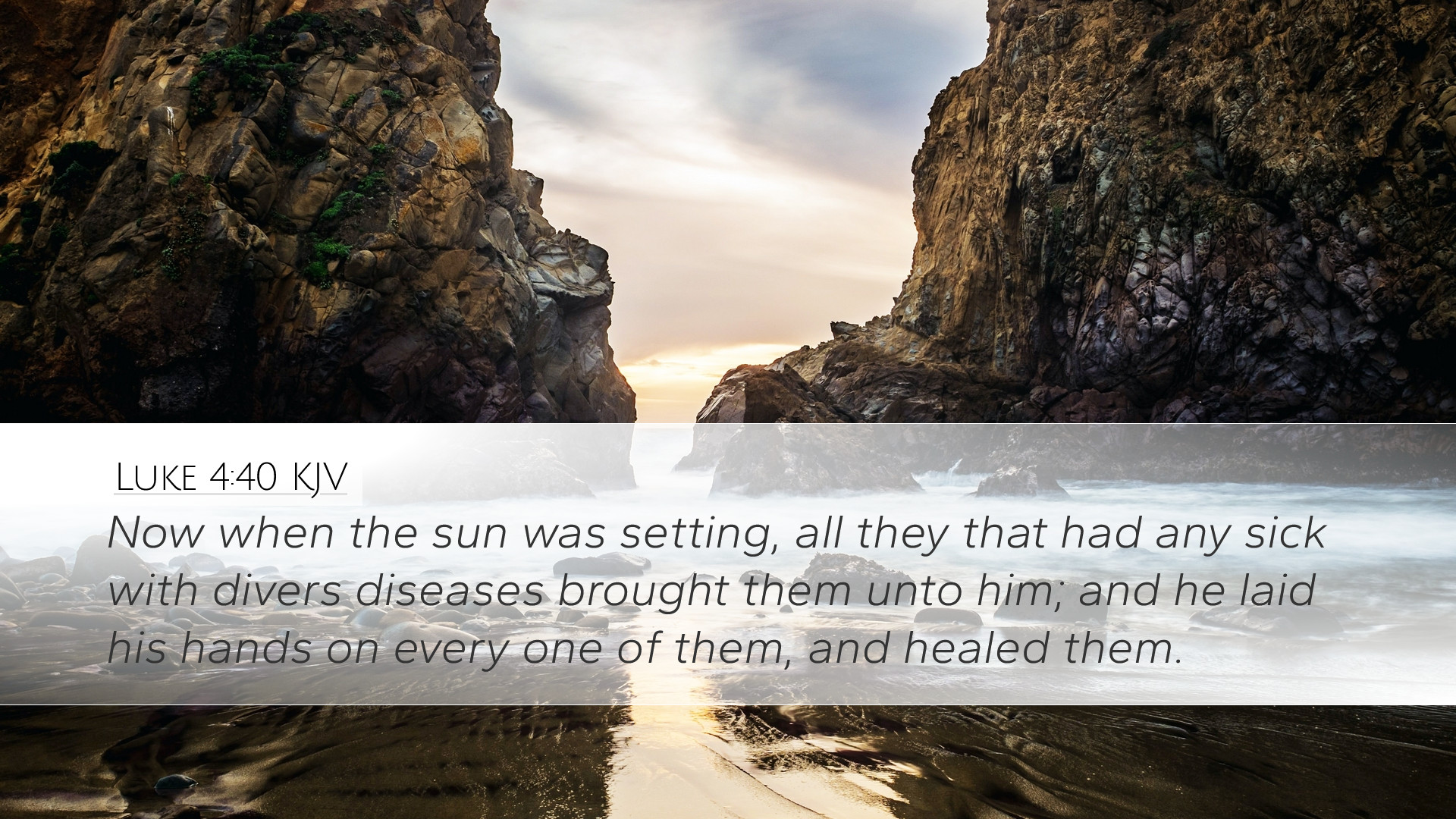Old Testament
Genesis Exodus Leviticus Numbers Deuteronomy Joshua Judges Ruth 1 Samuel 2 Samuel 1 Kings 2 Kings 1 Chronicles 2 Chronicles Ezra Nehemiah Esther Job Psalms Proverbs Ecclesiastes Song of Solomon Isaiah Jeremiah Lamentations Ezekiel Daniel Hosea Joel Amos Obadiah Jonah Micah Nahum Habakkuk Zephaniah Haggai Zechariah MalachiVerse
Luke 4:1 Luke 4:2 Luke 4:3 Luke 4:4 Luke 4:5 Luke 4:6 Luke 4:7 Luke 4:8 Luke 4:9 Luke 4:10 Luke 4:11 Luke 4:12 Luke 4:13 Luke 4:14 Luke 4:15 Luke 4:16 Luke 4:17 Luke 4:18 Luke 4:19 Luke 4:20 Luke 4:21 Luke 4:22 Luke 4:23 Luke 4:24 Luke 4:25 Luke 4:26 Luke 4:27 Luke 4:28 Luke 4:29 Luke 4:30 Luke 4:31 Luke 4:32 Luke 4:33 Luke 4:34 Luke 4:35 Luke 4:36 Luke 4:37 Luke 4:38 Luke 4:39 Luke 4:40 Luke 4:41 Luke 4:42 Luke 4:43 Luke 4:44

